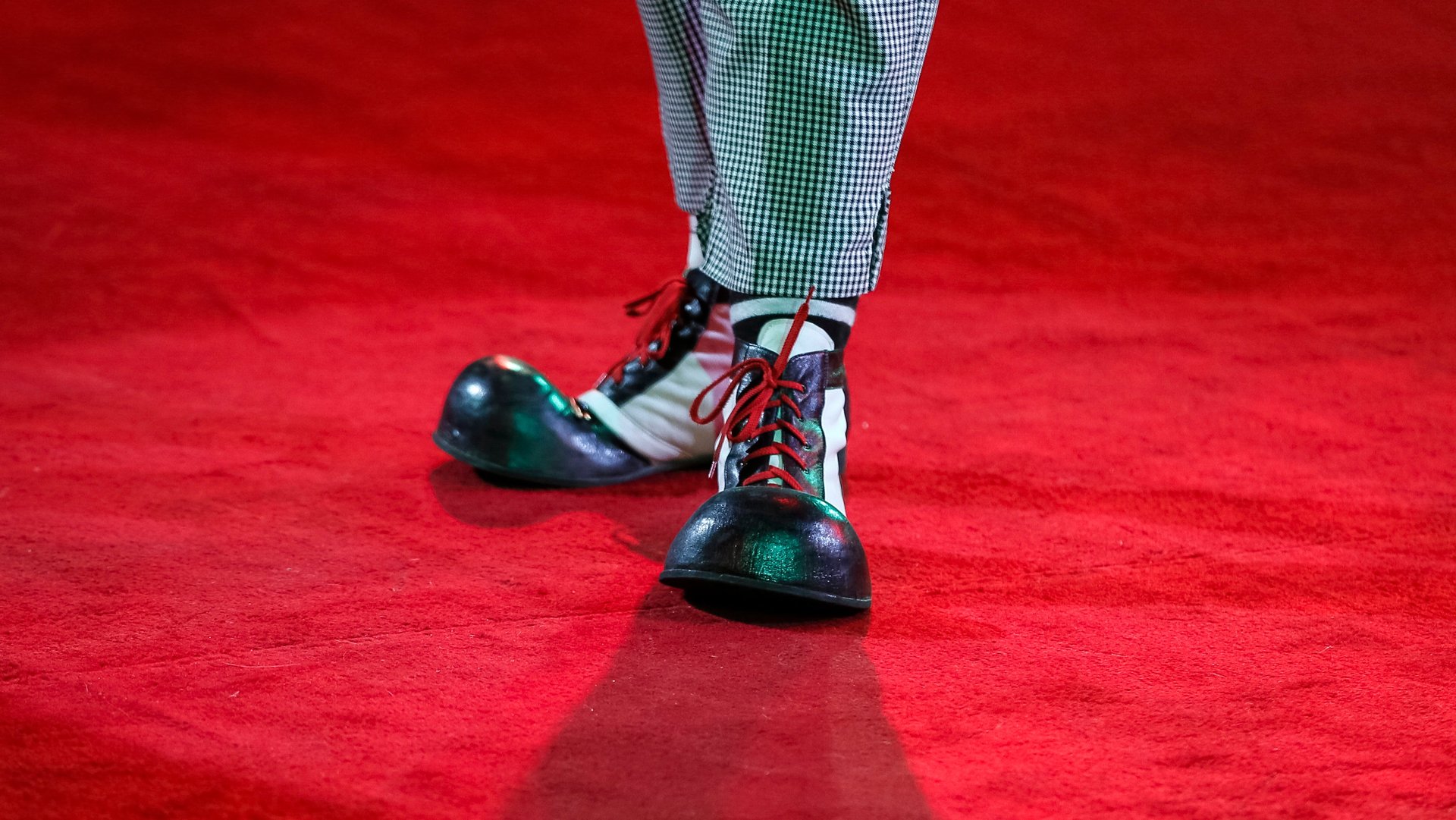Is your coworker an assclown or an asshat? Linguists explain the difference
Look at that guy over there at work. Listen to him. He is the worst. The worst. “Jerk” feels too soft for someone this aggressively foolish; “asshole” feels too grand, somehow, for someone this blundering.


Look at that guy over there at work. Listen to him. He is the worst. The worst. “Jerk” feels too soft for someone this aggressively foolish; “asshole” feels too grand, somehow, for someone this blundering.
So: Is he an asshat? Or is he an assclown?
Those two delightfully descriptive terms are among the 1,400 words, phrases, and meanings added to the Oxford English Dictionary in its most recent quarterly revision. The most thorough record of the English language offers the exact same definition for both nouns: “a stupid or contemptible person.”
But are these two epithets truly interchangeable? For those who like to be as precise as possible when muttering sotto voce complaints about their coworkers, are there subtle variations in behavior that distinguish an assclown from an asshat?
Linguists say yes. But first, some history.
Asshat
Asshead has been with us as an insult since at least 1541, when English cleric Thomas Becon lamented how “little pleasure have these asse heades in hearing the glorious & blessed word of god.” Asshat, in contrast, dates only to the earliest days of the 21st century. The OED identifies the Jan. 4, 2002, Usenet post “You’re an asshat too” as the word’s first known inscription in written English, making the newsgroup rec.sport.paintball sort of like asshat’s own Chauvet Cave.
From the primordial soup of Usenet, asshat crawled ashore and intermingled with the cultural lexicon, evolving into a casual but descriptive term of an unlikeable person. In the word’s official entry in the Merriam-Webster dictionary, lexicographers theorized that it could be a play on the phrase to “have one’s head up one’s ass,” an insult which, if pictured literally, would indeed result in the person’s ass serving as a sort of hat. However, the author concluded, “a more precise history will depend on the location of further attestations.”
Assclown
Whereas asshat seeped slowly into the culture, assclown sprung fully formed, Minerva-like, from the brain of writer and director Mike Judge. The word’s first documented appearance in the English language is at the 0:33 mark in this scene in Judge’s 1999 film Office Space:
An assclown, wrote etymologist John Kelly in the blog Strong Language, “is a pejorative pie thrown especially in the face of someone who, wrongly, thinks their actions are clever, funny, or worthwhile.” Examples of persons named as assclowns in the popular press include art vandals, Anonymous, and selfie-stick wielders.
As with an asshat, an assclown’s identity derives largely from the dissonance between the person’s regard for himself and the regard in which others hold him. But how to draw a line between the two? Name developer and brand consultant Nancy Friedman, who has written about asshats for Strong Language, says that of the two, an asshat “is more of an asshole and less of a joker” than his cousin the assclown.
Others disagreed. “I see assclown as an appropriate putdown not just for a run-of-the-mill jerk, but someone who revels in the performance of being a jerk,” said linguist and lexicographer Ben Zimmer. “Asshat is a bit milder and not so performative.”
Kelly tells Quartz at Work that he considers asshat an appropriate term for a person doing obnoxious things, while assclown is the correct label for a fundamentally obnoxious person. A hat is something you wear; a clown is something you are. “Hats can be taken on and off, at least in my mental imagery of the swears, while clown hits deeper at someone’s behavior or being,” Kelly told us via email.
Both terms derive their power from their associations with asshole, a word of singular force in English. “Asshole” was first used to describe an unpleasant person during World War II, explains Geoffrey Nunberg, a linguistics professor at the University of California, Berkeley and the author of Ascent of the A-word: Assholism, the First Sixty Years. From the beginning, it was an insult that punched up: US soldiers used it to describe an officer who believes his status “entitles him to a kind of behavior—to either abuse his men, or makes him more important than he really is,” Nunberg told NPR.
By the 1970s, the word had embedded itself in popular culture. It still carried the implicit accusation that the asshole in question was abusing whatever power he (or, less often, she) held, and failing to give others the basic respect and decency required by the social contract.
An asshole—or an assclown, or an asshat—is someone who doesn’t care, by reason of ignorance or malice, if his conduct demeans or offends another. It is about having a skewed relationship to entitlement, something that can become glaringly apparent in the confines of the workplace.
So, that guy: Is he an asshat or an assclown? You should use whichever term feels most satisfying in its utterance, safe in the knowledge that when historians unearth your furious tweets and texts and office-chat DMs centuries from now, the OED will be able to tell them exactly what you meant.